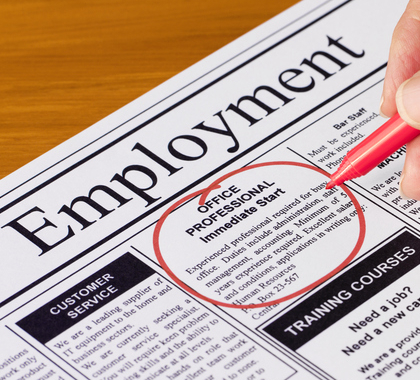Minimum-wage laws affect no part of the workforce more strongly than young workers. The bulk of empirical evidence shows a higher minimum wage has disproportionately hurt employment opportunities for young workers, who represent most minimum-wage earners.
Maine is one of several states to increase its state minimum wage in the past year. In 2016, Maine voters approved a referendum raising the state’s minimum wage to $9 in 2017 and subsequently by $1 each year, until 2020. Maine legislators are now considering legislation that would create a new minimum hourly training wage of $1.00 above the federal minimum wage for a person who is 20 years of age or under and is a student at a secondary or postsecondary school.
The training wage now being considered in Maine, also commonly known as a “youth minimum wage” (YMW), has worked well in other countries for young workers and those being trained. In a 2004 study, David Neumark and William Wascher looked at a cross-section of 17 member-countries of the Organisation for Economic Co-operation and Development. Their results reveal minimum-wage requirements have had a negative effect on youth employment and that a mitigation of this effect has been achieved in those countries with strong subminimum-wage provisions.
The mechanism for a youth minimum wage already exists at the federal level. Current federal laws allow for employers to pay a lower minimum wage to employees under 20 years old. The subminimum is set at $4.25 per hour, but this lower wage may be paid only for the first 90 days of employment. Currently, only 15 states have adopted the federal YMW. Seventeen other states and the District of Columbia have enacted youth exemptions with restrictions added to the federal law. Eighteen states have no YMW, which means the adult minimum wage is required for all workers.
In a report examining the youth minimum wage, Preston Cooper of the Manhattan Institute recommends applying the $4.25 youth minimum wage nationwide and eliminating the 90-day limit, arguing it will create thousands of jobs for younger workers. “If all states and the federal government adopted a YMW of $4.25 for individuals aged 16–19, with no 90-day limit, the growth rate of employment for this group could increase by up to 8.9 percentage points, generating up to 456,200 additional jobs in the first year following enactment,” wrote Cooper for the Manhattan Institute.
Despite its good intentions, Maine’s increased minimum wage is unlikely to improve the number of Mainers living in poverty. The burden of the increased minimum wage will fall hardest on young workers. As economist Walter Williams has explained, “Workers earning the minimum wage or less tend to be young, single workers between the ages of 16 and 25. Only about 2 percent of workers over 25 years of age earn minimum wages.”
A 2007 study from economists at the University of California-Irvine and the Federal Reserve Board examined the body of work on the subject and found 85 percent of the studies they considered credible demonstrate minimum wage laws cause job losses for less-skilled employees.
Maine should consider adopting a youth minimum wage that has no time limits attached. Enacting a youth minimum wage would make hiring young workers more attractive to employers while making on-the-job training, which benefits all parties, more affordable. Increasing the legal minimum wage is not an effective method of reducing poverty, and it harms workers by creating barriers to entry for less-skilled and less-educated people.
The following articles examine minimum-wage hikes and their effects on employment.
Reforming the U.S. Youth Minimum Wage
https://heartland.org/publications-resources/publications/reforming-the-us-youth-minimum-wage
This report by Preston Cooper, policy analyst at the Manhattan Institute, examines how many, if any, economic benefits would result from moving to a uniform, national youth minimum wage that has more-permissive rules for workers aged 16–19.
Why Not Boost Teen Employment with a Training Wage?
http://www.heritage.org/jobs-and-labor/commentary/why-not-boost-teen-employment-training-wage
In this article by economist Stephen Moore for The Heritage Foundation, Moore argues in favor of implementing a training wage. “Wouldn’t it be better for kids to have a job that pays $5 or $6 an hour than no job at all? We can debate what the right wage requirement is for hiring an adult. But whatever that rate is, let’s help every young American who wants a job to get one by setting a federal teen minimum wage of $5 an hour. Call it a training wage,” Moore wrote.
Counterproductive: The Employment and Income Effects of Raising America’s Minimum Wage to $12 and to $15 per Hour
https://heartland.org/publications-resources/publications/counterproductive-the-employment-and-income-effects-of-raising-americas-minimum-wage-to-12-and-to-15-per-hour
In this Issue Brief published by the Manhattan Institute, Douglas Holtz-Eakin and Ben Gitis examine the economic and policy implications of raising the federal minimum wage to $12 per hour or to $15 per hour. “We focus on how raising the federal minimum wage would affect the very low-wage workers whom the policy is intended to help. Overall, we find significant trade-offs in raising the federal minimum wage.”
Do Workers a Disservice – Raise the Minimum Wage
https://heartland.org/publications-resources/publications/do-workers-a-disservice—raise-the-minimum-wage
In this Public Interest Institute Institute Brief, Robert N. Stewart argues minimum wage laws actually hurt the people they are designed to help: “Most of these people are teenagers working part-time or unskilled workers seeking to advance to higher paying positions. To many of these workers, raising the minimum wage will either result in unemployment or a lower-paying position. Raising the minimum wage, altruistic as it may feel, is actually doing these workers a disservice.”
The Minimum Wage Delusion, and the Death of Common Sense
http://www.cato.org/publications/commentary/minimum-wage-delusion-death-common-sense
Writing for Forbes, James A. Dorn of the Cato Institute argues the commonly held belief the minimum wage helps the poor is a delusion: “The belief that increasing the minimum wage is socially beneficial is a delusion. It is short-sighted and ignores evident reality. Workers who retain their jobs are made better off, but only at the expense of unskilled, mostly young workers who either lose their jobs or can’t find a job at the legal minimum.”
Busting 5 Myths about the Minimum Wage
http://blog.heritage.org/2013/03/05/busting-5-myths-about-the-minimum-wage/
James Sherk of The Heritage Foundation debunks five myths about minimum wage hikes, often used by proponents of minimum wage laws: “A higher minimum wage would help some workers, but few of them are poor. The larger effect is hurting the ability of potential workers living in poverty to get their foot in the door of employment. A minimum wage hike might help politicians win plaudits from the press, but it wouldn’t reduce poverty rates.”
Unintended Consequences of Raising the Minimum Wage
http://mercatus.org/publication/unintended-consequences-raising-minimum-wage
Antony Davies of the Mercatus Center examines arguments for and against minimum-wage increases and presents new results comparing employment for workers with differing educational attainments.
The Negative Effects of Minimum Wage Laws
https://heartland.org/publications-resources/publications/the-negative-effects-of-minimum-wage-laws
Mark Wilson of the Cato Institute reviews the economic models used to understand minimum wage laws and examines available empirical evidence. Wilson describes how most of the academic evidence shows minimum wage laws have negative effects, and he discusses why some studies produced seemingly positive results.
Research & Commentary: Earned Income Tax Credit vs. Minimum Wage Laws
https://heartland.org/publications-resources/publications/research–commentary-earned-income-tax-credit-vs-minimum-wage-laws
The Earned Income Tax Credit (EITC) and minimum wage laws have been two of the primary mechanisms the federal and state governments have used to help low-income families move out of poverty. A debate is currently ongoing in many state legislatures and Congress over which of these two policies is more effective and should be expanded. Recent studies have shown the EITC to be more effective. In this Research & Commentary, Matthew Glans examines the Earned Income Tax Credit and minimum wage laws from multiple perspectives.
Minimum Wages and Employment: A Review of Evidence from the New Minimum Wage Research
https://heartland.org/publications-resources/publications/minimum-wages-and-employment-a-review-of-evidence-from-the-new-minimum-wage-research
David Neumark and William Wascher review the literature on the employment effects of minimum wages in the United States and other countries spurred by new minimum wage research beginning in the early 1990s. Their review indicates there are a wide range of estimates and, accordingly, a lack of consensus about the overall effects on low-wage employment of an increase in the minimum wage. Their review found very few studies provide convincing evidence of positive employment effects of minimum wages.
Minimum Wages, the Earned Income Tax Credit, and Employment: Evidence from the Post-Welfare Reform Era
https://heartland.org/publications-resources/publications/minimum-wages-the-earned-income-tax-credit-and-employment-evidence-from-the-post-welfare-reform-era
David Neumark and William Wascher examine the effects of minimum wages and the EITC in the post-welfare reform era.
Raising the Minimum Wage Hurts Vulnerable Workers’ Job Prospects without Reducing Poverty
https://heartland.org/publications-resources/publications/raising-the-minimum-wage-hurts-vulnerable-workers-job-prospects-without-reducing-poverty
Although minimum wage laws are intended to reduce poverty, in reality, they encourage teenagers to drop out of school and reduce low-income workers’ future job prospects and earnings, observes James Sherk of The Heritage Foundation.
Nothing in this Research & Commentary is intended to influence the passage of legislation, and it does not necessarily represent the views of The Heartland Institute. For further information on this and other topics, visit the Budget & Tax News website, The Heartland Institute’s website, and PolicyBot, Heartland’s free online research database.
The Heartland Institute can send an expert to your state to testify or brief your caucus, host an event in your state, or send you further information on a topic. Please don’t hesitate to contact us if we can be of assistance! If you have any questions or comments, contact Nathan Makla, Heartland’s government relations manager, at [email protected] or 312/377-4000.




